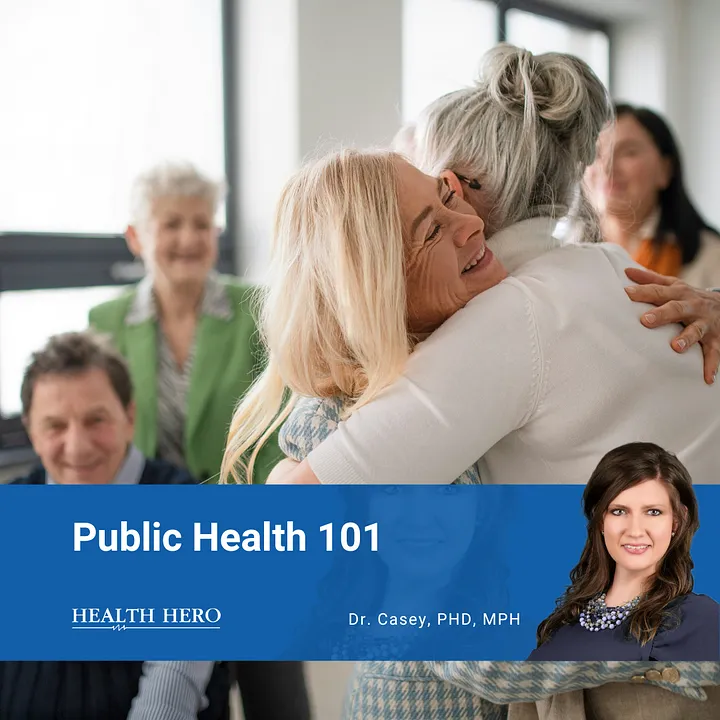My senior year of college, I told my family that I was going to graduate school for public health. They were excited and supportive, but also a bit confused. I was going to graduate school to…work at the health department? Well…no. I had always been interested in health and medicine; how was this going to help me achieve my goals? What was “this”? And truthfully, even I didn’t fully understand the field that would become my life’s work back then — that it is huge, diverse, and applies to practically all areas of life and to everyone in ways we don’t even realize. I didn’t fully grasp its mission, its reach, or how incredible of an impact one can make through public health. Two decades later, I’m still amazed. But back to the start…
Growing Awareness
Now, in 2024, many more people have some understanding of what public health is, or at least have heard the term, compared to prior decades. That is mostly due to the COVID-19 pandemic, when the term “public health” suddenly seemed to be everywhere. Still, though, I find that many people aren’t exactly sure what it means. To be honest, that is understandable. One reason for that is because public health means a lot of things. Public health is connected to countless areas of everyday life that you might never think of. I guess, in some ways, public health is typically more of a behind-the-scenes presence, and that is usually how we want it. If public health is front and center, it often means something is very wrong (like, for example, COVID, or an environmental public health disaster like Chernobyl).
So Then What Is Public Health?
There is not one definition, but generally, public health is the science of protecting and improving the health of individuals and their communities. Public health has a broad definition because it encompasses so many things. To accomplish something as big as “protecting and improving health,” a lot has to go into it. Here are just a handful of examples of how public health works to do this:
· Researching diseases
· Detecting and tracking infectious diseases (like flu or measles, for example)
· Preventing diseases through advising the public about precautions to take and things like vaccinations
· Promoting healthy lifestyles (such as educating people about healthy eating and the dangers of tobacco use)
· Injury prevention through policy change
· Promoting environmental health for our communities
And countless other ways.
How Is Public Health Different from Clinical Medicine?
If you have read any of my posts, you have probably seen that I put a lot of emphasis on prevention, and this is what sets public health apart. Much of clinical medicine (meaning the physicians, nurses, and other healthcare providers we rely on every day) focuses mostly on treating people after they have gotten sick or been injured. Public health, rather, works to prevent sickness and injury from happening at all.
In my opinion, do you know what is better than the absolute best, top-of-the-line treatment? …Never needing a treatment because the disease it treats has been prevented!
While the ideals of public health are amazing and a society that can live focused totally or even mostly on prevention would be practically a dream, that is not the society in which we currently live. It is unlikely any of us will see a society like that in our lifetimes due to the many infectious and chronic diseases that are so common throughout the world. So while a public health (meaning prevention)-driven society is something we can strive for, the reality of that is still a long way away. Which is why the hybrid health strategies combining clinical medicine and public health meet are the best fit for our needs. We have clinical medicine to treat and even cure existing health issues we battle, and this is vitally important. And we also work to introduce preventive, public health strategies however we can to help move towards a prevention-focused society.
I’m sure I will be talking more about public health in the future, but for the moment, C. Everett Koop, a former U.S. surgeon general, has a great quote that I think really ties some of these ideas together. He said:
“Health care is vital to all of us some of the time,
but public health is vital to all of us all of the time.”
Be Well; Be Kind,
Dr. Casey
